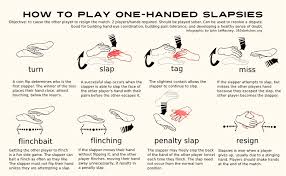Slate’s John Dickerson writes about the regret he feels about not inviting his parents’ friends to his wedding for Slate’s wedding issue. This paragraph, which deals with parenthood, was especially poignant for me:
There’s an indefinite point in your tenure as a parent where you start to realize your kids are leaving you. For us, the first hints came at about age 9. As your kids age, you delight in the new bonds that replace the old ones. No longer laughing over Dr. Seuss, you’re now laughing over The Avengers and tomorrow Arrested Development. Or you’re watching them pull the wriggling fish off the hook, which was once your job. The moments are so sweet you can usually avoid the thread of melancholy embedded in each of them: With each molting, you reinforce that the molting is happening faster.
I am never able to “avoid the thread of melancholy embedded in each of them.” While I am not a parent who feels that my children are growing up too fast (perhaps because I mark every day in writing), I am constantly aware of the unending series of losses that parenthood represents.
When my four year-old daughter asks me to pick her up and carry her, I do so every time, regardless of circumstance, because I know the number of times I will be able to pick her up are dwindling.
That melancholy shades everything I do with my children. It reminds me of the importance of each moment, but it also reminds me of its impermanence. My nearly lifelong, omnipresent existential crisis has been both a blessing and a curse.
Later this month, I will be telling the story of one of my near-death experiences onstage. While preparing for that story, I wrote this:
There is not a day, not an hour, that goes by that I do not think about my own mortality. I live in a constant, persistent, unending existential crisis. Its causes are two near-death experiences and a robbery that had me convinced that I was going to die. It has contributed to more than decade of post-traumatic stress disorder, an inability to sleep peacefully and an awareness and fear of death that had caused me to spontaneously weep at times.
I spend my waking hours wondering if this will be the last time I hug my daughter, the final time I witness a sunset or the last time I hear The Beatles sing about Desmond and Molly and their home sweet home. I go to bed every night, angry about my need for wasteful, unproductive sleep, wondering if I can shave another minute or two off the scant few hours I already spend in bed.
I look at the world and I see impermanence and decay. I see a planetary population that will cease to exist one hundred years from now.
Dickerson is right in describing these parental moments as sweet. Indescribably sweet. Some of the simplest and best moments of my life.
I would like to also say that these are unforgettable moments, but I tend to avoid that word because I know that someday I will die and everything will be forgotten.
The ability to avoid the thread of melancholy that is embedded within these moments of parental bliss is something that I cannot do.
I am envious of John Dickerson and every other parent who can.









